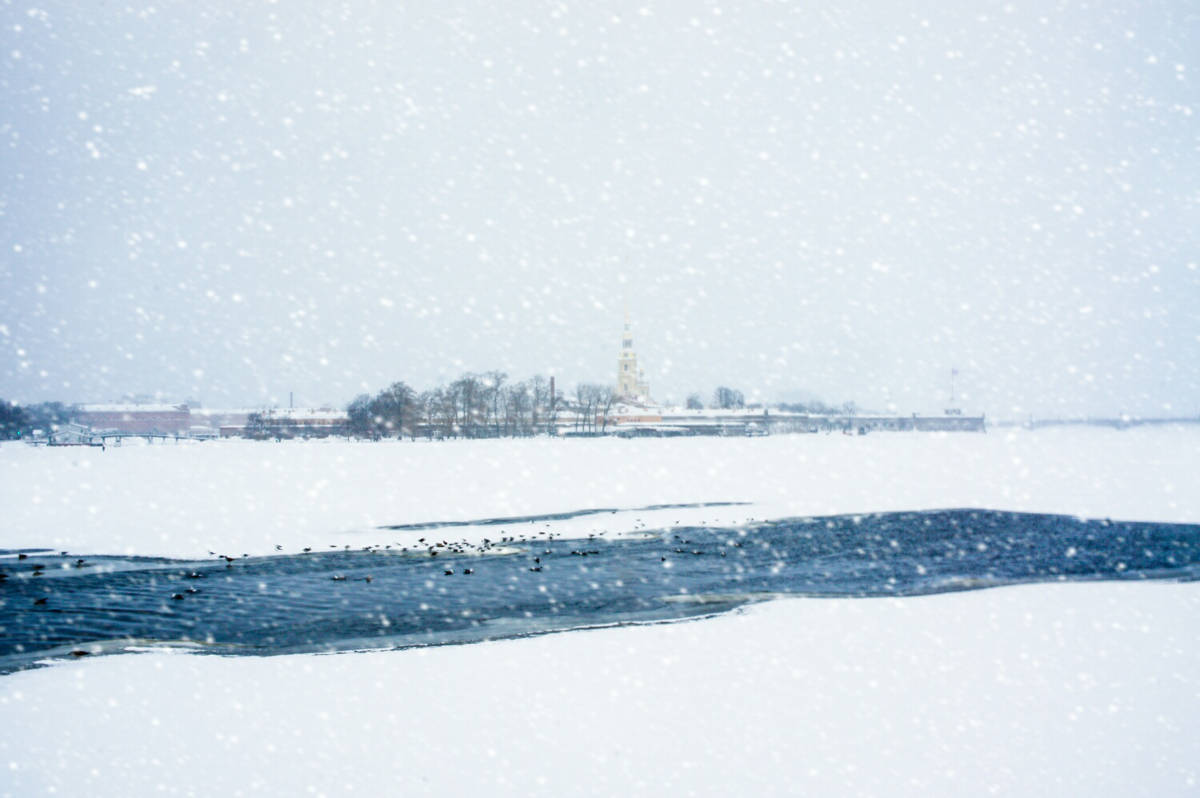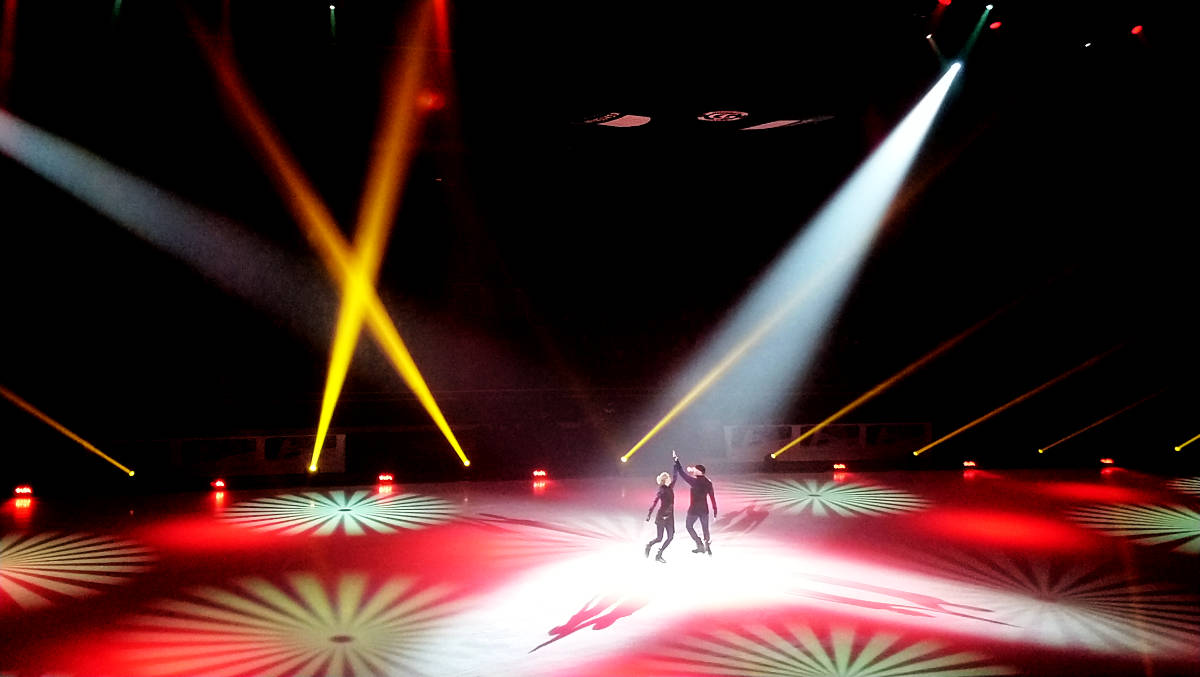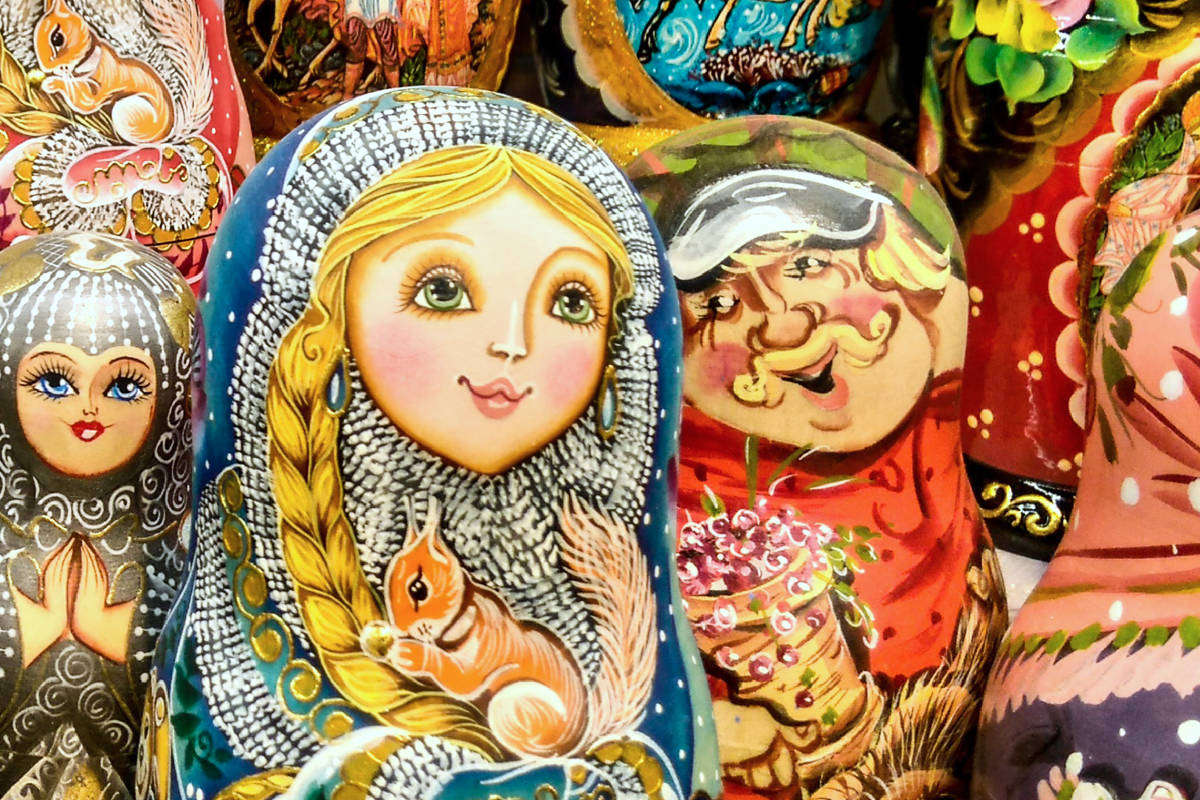Visiting Russia in winter looks like a dream for some travellers, and like an insurmountable trial for others. Let’s find out whether a winter trip to Russia is a cool adventure or an insuperable challenge.
Due to weather conditions, summer is considered as the high tourist season in Russia. Undoubtedly, wandering outside and discovering nature treasures is more pleasant when it’s warm outside. Besides, in the summertime, there is no need to bring heavy clothes and boots.

This post may contain affiliate links. If you purchase something through following the link, I may receive a small commission at no extra cost to you.
However, winter also has its advantages. Probably, the most important of them is that touristy places are not so crowded as in summer. Another reason for visiting Russia in winter is to enjoy the snow and exclusively winter distractions.
I have to mention that winter trips require some special planning.
Firstly, before you go, you have to ensure you have proper clothes which will keep you warm despite the cold climate.
Secondly, while planning activities, don’t forget that staying outside for a long time is rather challenging (even for us Russians, acquainted to winters).
Thus, in this post let’s discover:
- Weather conditions
- Tips on choosing the right clothes
- Things you should know about taking photos in cold weather
- Advice for planning pastime.
Notice:
Which period of the year do I mean when saying ‘winter’? This is not calendar winter: December, January, and February. Actually, Russian winter is the period from mid-November until the end of March.
Winter Weather In Russia
The question ‘What is the weather like in Russia?’ always leaves me perplexed.
Russia stretches for 10 000 km from the west to the east and 4 000 km from the North to the South. Thus, the weather depends on the region you travel to. There are south regions which don’t even know what snow is. There are also regions where winter temperatures can fall to -50°C. I suppose you have heard of Russian town Oymyakon which is considered as one of the coldest permanently inhabited places on Earth.
In this post, I’ll take into consideration the 2 most popular destinations in Russia: Moscow and St. Petersburg. This will give you a general vision of what to expect while you’re visiting the central part of Russia in winter.
In winter, temperatures in Moscow and St. Petersburg go approximately from +5°C to -20°C. As you can see, the gap is wide so once more I advise to check weather forecasts.
The coldest months are January and February. And the snowiest too. Thus, there’s a big chance to catch a picturesque snowfall or, on the contrary, a crisp day when everything is covered with sparkling frost. Anyway, before you go, check weather forecasts on Gismeteo or any other similar website.
What To Wear While Visiting Russia In Winter
Wearing proper clothes is the key to an enjoyable winter trip to Russia. Believe me, for an outdoor promenade, it’s better to forget ‘winter’ clothing from fashion magazines. Often, those trendy outfits have nothing to do with real cold weather. Opt for comfort (and health), not for fashion.
4 most important things about winter outfits:
- Layer clothes. In cold climate wearing layers is a must.
Firstly, wearing a long sleeve + a fleece pullover is warmer than wearing a heavy woollen pullover.
Secondly, layered clothes allow being more flexible. For instance, while making a pit-stop in a cafe or visiting a museum, you can take off / unzip unnecessary pullovers. - Opt for waterproof and windproof down jackets. Preferably knee-long and with a hood.
- Add accessories. For wandering outside during cold times you will also need proper accessories: a scarf, a hat, and a pair of gloves (or mittens).
- Choose the right footwear. As to me, having the right footwear is even more important than having good clothes. Be sure that your boots are waterproof. In big cities snow on the roads and footpaths melts very quickly, and turns into slash. Your footwear must effectively protect you from cold and humidity.
Obviously, rubber boots are not suitable for winters, even if they have a faux fur lining. They are not warm and become slippery when it’s cold.
How To Plan Winter Activities
Now let’s see how to plan activities and sightseeing for visiting Russia in winter.
First of all, pay attention that some popular summer entertainments are not available in winter! For instance, talking about St. Petersburg, here’s the list of activities which will NOT be available:
- boat tours. The navigation ends at the end of October and restarts in May. The reason is obvious — rivers and canals are frozen in winter.
- white nights when the day lasts up to 18 hours. White nights season is a summer phenomenon. Come to enjoy them in May, June and July.
- fountains, including famous fountains of Peterhof. Same reason as for boat tours — it’s too cold outside. Thus, while visiting tsars’ summer residence in Peterhof, you won’t see fountains in the park. On the other side, you’ll have plenty of time for exploring the gorgeous imperial Grand Palace with no crowds.
- escapades in the royal parks. The parks are open but their decorations (like sculptures) are usually hidden in boxes or removed. This protects sculptures from cold.
- concerts and street musicians performing in the open air. You can still listen to musicians on the Palace Square in St. Petersburg. They play the guitar and sing in front of the Hermitage Museum almost every evening despite the cold weather.
How to plan activities then?
While planning your itinerary, always alternate indoor and outdoor activities. Combine hiking outside with exploring metro stations, for example. All metro stations lay under the ground. That is why their ‘climate’ is warm. Besides, many metro stations in Moscow and St. Petersburg look like a museum.
Don’t forget that it’s necessary to eat hot dishes. Have a good breakfast with kasha (‘kasha’ means porridge) and try hearty Russian soups for lunch (solyanka, sour cabbage soup, or borsch).
What To Do In Russia In Winter?
- Winter is an excellent time for all history and art lovers.
Museums are less crowded than in summer. This is especially important if you want to visit must-see museums (world-known sights): for instance, the Pushkin Museum Of Fine Arts in Moscow, or the Hermitage Museum in St. Petersburg.
Some museums became victims of their popularity. Who saw lines to the Hermitage Museum in summer, knows what I’m talking about.
Just imagine: in summer visitors wait up to 5 (!!!!!) hours to enter Catherine Palace with its wonderful Amber Room. 5 hours in a queue — it’s insane 🙁
As for me, during summer I made multiple visits to royal parks but I don’t even try to get to Catherine Palace. I visit it in winter. - If you’re interested in active vacations, try snowboarding and skiing in one of the suburb parks. Moreover, add to your activity list ice skating on the on of the open-air skating rinks. I’d suggest skating rink ‘Ice’ in Sokolniki Park in Moscow and New Holland Island skating rink in St. Petersburg. You don’t have to buy any equipment — just rent a pair of skates right there.
- Then explore restaurants and cosy cafes. First, try traditional Russian dishes like borsch or beef Stroganoff. Then you can go deep and appraise contemporary Russian cuisine (like crispy waffle rolls with Borodinsky bread flavour and smoked mackerel forshmak in ‘Cococo’ restaurant in St. Petersburg, for example). And if this is still not enough, you will easily find all kinds of cuisines in restaurants: Japanese, Korean, Georgian, Ukrainian, Indian, etc.
- Book tickets to theatres. First, don’t miss the chance to see the famous Russian ballet and visit the wonderful Russian theatres. It’s a must-do while travelling to Russia. The secret of Russian ballets is that you can watch them over and over again, and never get bored. I swear that you’ll certainly fall in love with classical ballets like ‘The Nutcracker’ or ‘Swan Lake’!
If you travel with kids, think of attending one of the circus shows.
One more idea which will please adults and children is watching ice skating shows. Ice skating shows are a hot mix of ice skating, theatre, musical, and dancing. Usually, these shows are based on well known classical stories like ‘Carmen’, ‘Wizard of Oz’ or ‘Romeo and Juliet’. - Book tickets for traditional Russian music shows as many artists perform in Moscow and St Petersburg. If you want to catch the true spirit of Russia, I’d recommend opting for something unusual, for instance, a Russian Folk Show in St Petersburg. This show is a colourful mix of Russian folk songs and dance, including lyrical romances, Russian Orthodox hymns, and the Cossacks’ dance. Moreover, the Russian folk show takes places in one of the imperial palaces of St Petersburg — Nikolayevsky Palace. Thus, you’ll not only enjoy the show, but will also visit one of the city’s sights.
If you spend your winter vacations in Moscow, head to the Golden Ring Folk Show. The show introduces guests into Russian dance traditions. You’ll enjoy traditional dances from different Russian regions, as well as traditional costumes. - Go for street photography as cities are wonderfully decorated for winter holidays (New Year and Christmas). Keep in mind that in winter days are short — it’s already dark at 5 p.m. That’s why for daylight photography it’s usually necessary to chase the sun. Thus, plan your outdoor photo shooting for the first half of the day.
After dark Moscow and St. Petersburg look absolutely different due to kilometres of strings of lights and illumination of the buildings. This is a great time for fairy tale photos! - Opt for only-in-winter activities like a visit to a festival of ice sculptures or a sleigh ride with winter barbecue.
Winter Holidays in Russia

While planning your visit, take into consideration that all Russians have long New Year vacations. They last from December 31 to January 8. This period is also the time of school vacations. Thus, during those 9 days most known sights (as the State Tretyakov Gallery in Moscow or the Hermitage Museum) may be more crowded than usual.
During New Year vacations shops, big museums, restaurants are open. But organizations like banks are closed.
READ POST: Winter Holidays In Russia
Prepare Your Camera For Winter Shooting
Snow, ice, and hoarfrost may look picturesque on photos. However, cameras are afraid of cold as well as a human being. That is why it’s important to know how to handle cameras in winter. There is no special camera for hard weather conditions but there are rules which will help you not to damage your photo gear.
What you should know about winter photo shooting? These are the most important things to pay attention to:
- Protect your camera from snow and water.
Snowfalls look wonderful, no doubt! But it’s also true that photo gear doesn’t like humidity. Always carry a nice microfiber cloth so that you can quickly remove water drops from the camera body. - Keep batteries warm.
You’ll be surprised how quickly batteries discharge in cold conditions! Therefore, always carry additional batteries. Keep the batteries in warm: when not used, put them closer to your body (for instance, into inner jacket pockets or in mittens).
There is no need to keep the whole camera in warm because it’s important to… - Beware of condensate.
During hard temperature changes, the lens and the camera body (even inside) may be covered with condensate. You have to protect your camera from being damaged.
After shooting in the cold, close the lens of the camera with the lid, and put the camera to your bag. Don’t take your camera off the bag right when you come back to a warm place. Let the camera lie in the bag for an hour and a half to be warmed up to room temperature.
After reading all the recommendations, it may seem that visiting Russia in winter is too tough. But tough doesn’t mean bad.
Plan your trip, and you will see Russia in the way other travellers rarely see it!






Very informative article and a great website!
Thank you, Annelise ♥ I hope the blog is helpful for travellers.
Interesting to visit! Me and my family are very excited to visit Moscow Russia this year!
I am sure you will enjoy Moscow! There are so many interesting things to do there ♥